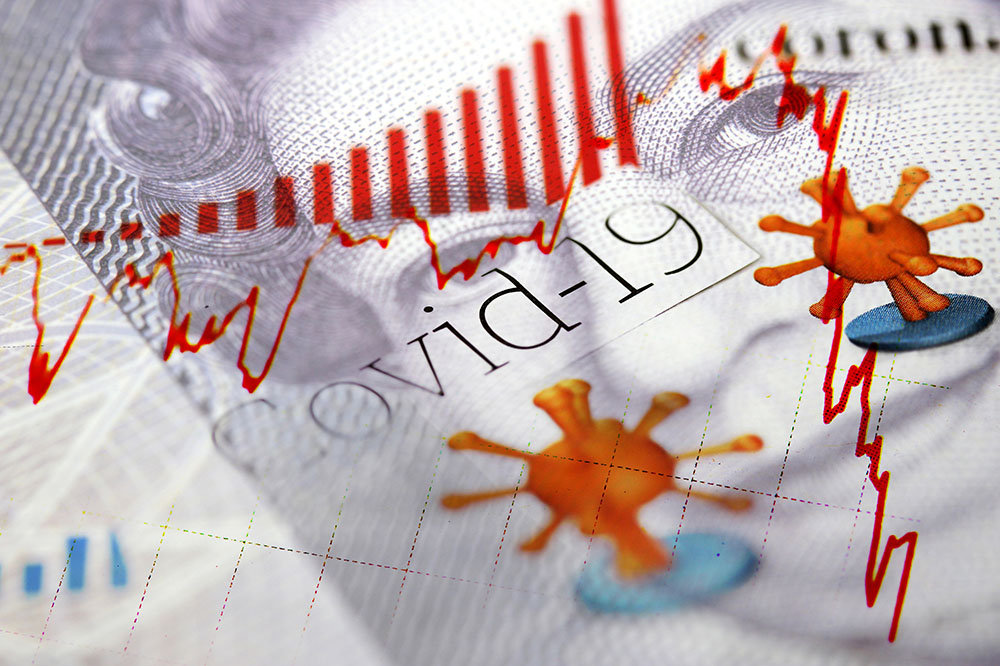Negative Interest Rates & Your Financial Plan: A Short Guide
This content is for information purposes only and should not be taken as financial advice. Every effort has been made to ensure the information is correct and up-to-date at the time of writing. For personalised and regulated advice regarding your situation, please consult an independent financial adviser here at Castlegate in Grantham, Lincoln or other local offices.
2020 has seen some historic moves by the government and the Bank of England (BoE) to try and stabilise the economy in the wake of COVID-19. Examples, of course, include the Job Retention Scheme for workers and Bounce Back Loans to help businesses access much-needed finance. At the time of writing, the BoE base rate sits at its lowest-ever point, at 0.10%. In addition, the current Governor, Andrew Bailey, has not publicly dismissed the chance of negative interest rates in the near future.
This latter possibility has important implications for each household’s finances, should it come to pass. This article discusses what negative interest rates are, how they impact the economy and what the impact might be upon an individual’s financial plan. If you would like to discuss any of these matters or discuss your own financial plan with us please get in touch to arrange a no-obligation financial consultation, at our expense:
01476 591022
info@casfin.co.uk
Defining negative interest rates
To understand how negative interest rates work it is key to grasp what the Bank of England does. In short, the BoE acts as a “bank for the banks”. The latter can make deposits to the BoE which then collects interest on them. The BoE “base rate” is the rate of interest that is charged on these deposits. As such, this level of interest greatly impacts the cost of lending within the wider UK economy. If it goes up, then borrowers usually pay more for a loan as banks try to recoup their losses from paying a higher rate of interest to the BoE.
At the present time, however, the base rate is at an historic low – 0.10%. So lending is generally “cheap” at the moment for those who want to borrow money. Yet savers, conversely, are likely to see fewer returns due to banks offering lower interest rates (which largely follow the base rate). Yet negative interest rates bring in a new dynamic to the economy. This causes banks to pay the BoE for keeping deposits with them, thus encouraging banks to lend their spare money to avoid paying for storage.
What does this mean for households?
It’s worth noting that many countries have already introduced negative interest rates such as Japan, Denmark and Switzerland. So the UK would not be entering completely unchartered territory if the BoE chose to move in this direction. Yet the implications for your mortgage and savings would likely be important.
According to one study, the COVID-19 pandemic and lockdown has already had a considerable impact upon savings rates. Between the 11th of March and the 1st of June 2020, average rates on regular savings account have fallen from 0.60% to 0.30%. Should the BoE decide to bring in negative interest rates then it’s highly likely that these figures would fall even further. The big question, of course, is whether banks might start charging people for keeping cash in their accounts (i.e. similar to the BoE charging banks for holding deposits). At present, this seems unlikely as it could cause mass withdrawals across the country, where people keep the money stored in their homes or other locations. This, of course, would destabilise the bank and also pose bigger risks for households due to break-ins.
Should the BoE introduce negative interest rates, then if banks do start charging people for cash savings then it is more likely that this will affect individuals who are over a certain net worth. Last year, for instance, one bank started charging customers a yearly 0.6% charge on cash savings of more than €500,000 (£461,000).
What about mortgages?
So, negative interest rates could spell bad news for savers. Yet what about homeowners? Here, it’s important to remember that most mortgages in 2020 across the UK are “fixed rate”. As such, these mortgages do not “track” the base rate – so monthly repayments are unlikely to go down if this goes into negative territory. Those on a standard variable rate (SVR), however, may see this go down under such circumstances.
If you’re thinking about taking out a new mortgage (perhaps attracted by the current low-interest environment in 2020), then it will be even more crucial to read the small print of each mortgage if interest rates turn negative. Many lenders specify that, regardless of what happens to the base rate, their mortgage rates will never fall below a certain level. In theory, however, it may be possible to take out a mortgage in the future with a negative interest rate. This is unlikely to happen, but if it did, then it would mean that, at the end of the lending period, you would end up paying back less than you originally borrowed from the bank!
Invitation
It’s important to note that much of the current discussion in the media about negative interest rates is highly speculative. Yet it’s prudent for households to keep attentive to the possibility of change and how this might affect one’s finances and wealth. Here at Castlegate, our financial advisers in Lincoln, Grantham and Nottinghamshire are here to assist with your queries.
If you are interested in discussing your own financial plan or investment strategy with us, please get in touch to arrange a no-commitment financial consultation at our expense:
01476 591022
info@casfin.co.uk












